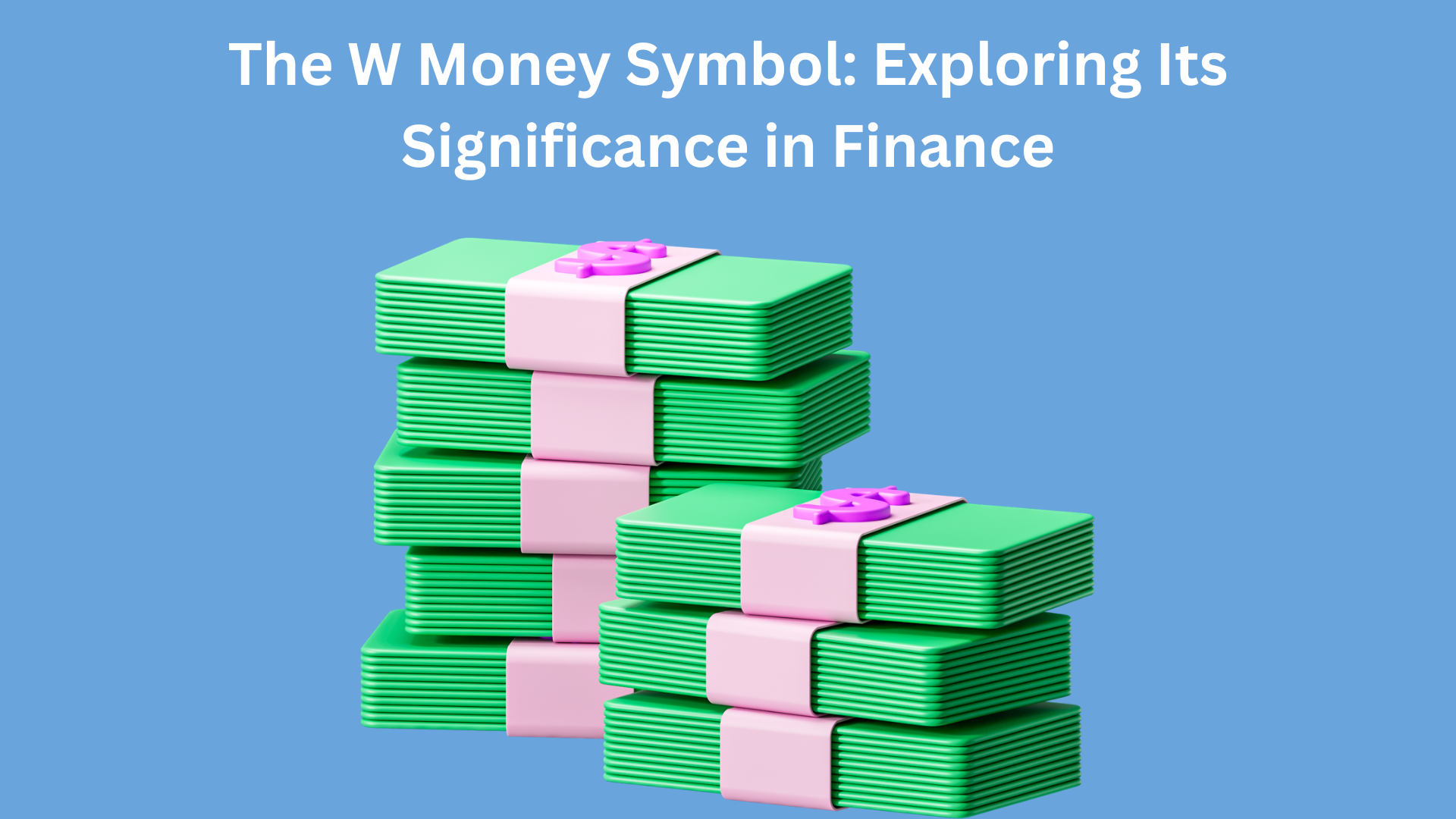The W Money Symbol: Exploring Its Significance in Finance
The W money symbol is a vital part of global financial communication, representing currencies, stock markets, and economic indicators. Understanding its meaning and significance is crucial for developers and businesses operating in international markets.

What is the W Money Symbol?
The W money symbol, often represented as "W," stands for various currencies worldwide. It is used to denote the currency codes of different countries in the global financial system. For example, "USD" represents the United States Dollar, where "USD" is the currency code and "$" is the symbol.
The Role of W Money Symbols in International Finance
In international finance, the W money symbol plays a critical role in currency trading, where traders buy and sell currencies based on their value in relation to other currencies. The symbol helps identify the currency being traded and its exchange rate.
Importance of W Money Symbols in Business
For businesses, understanding W money symbols is essential for conducting international transactions and managing foreign exchange risks. It helps them navigate the complexities of global markets and make informed decisions regarding currency conversions and investments.
Using W Money Symbols in Programming
In programming, developers often encounter W money symbols when working with financial data. They use currency codes to perform calculations, format data, and display currency values in applications.
Conclusion
The W money symbol is a fundamental aspect of global finance, representing currencies and facilitating international transactions. Developers and businesses must understand its significance to operate effectively in the global economy.

FAQs
Q: What is the significance of the W money symbol in international trade?
A: The W money symbol helps standardize currency representation and facilitates cross-border transactions.
Q: How are W money symbols different from currency symbols?
A: Currency symbols, such as "$" or "€," are graphical representations of currencies, while W money symbols are standardized codes used in financial transactions.
Q: Can the W money symbol change over time?
A: Yes, currency codes can change due to factors such as currency revaluation or the adoption of a new currency.
Q: Are W money symbols used only for currencies?
A: No, W money symbols can also represent other financial instruments, such as stock market indices and commodities.
Q: How can businesses benefit from understanding W money symbols?
A: Understanding W money symbols can help businesses manage currency risks, price products accurately in different markets, and comply with international financial regulations.